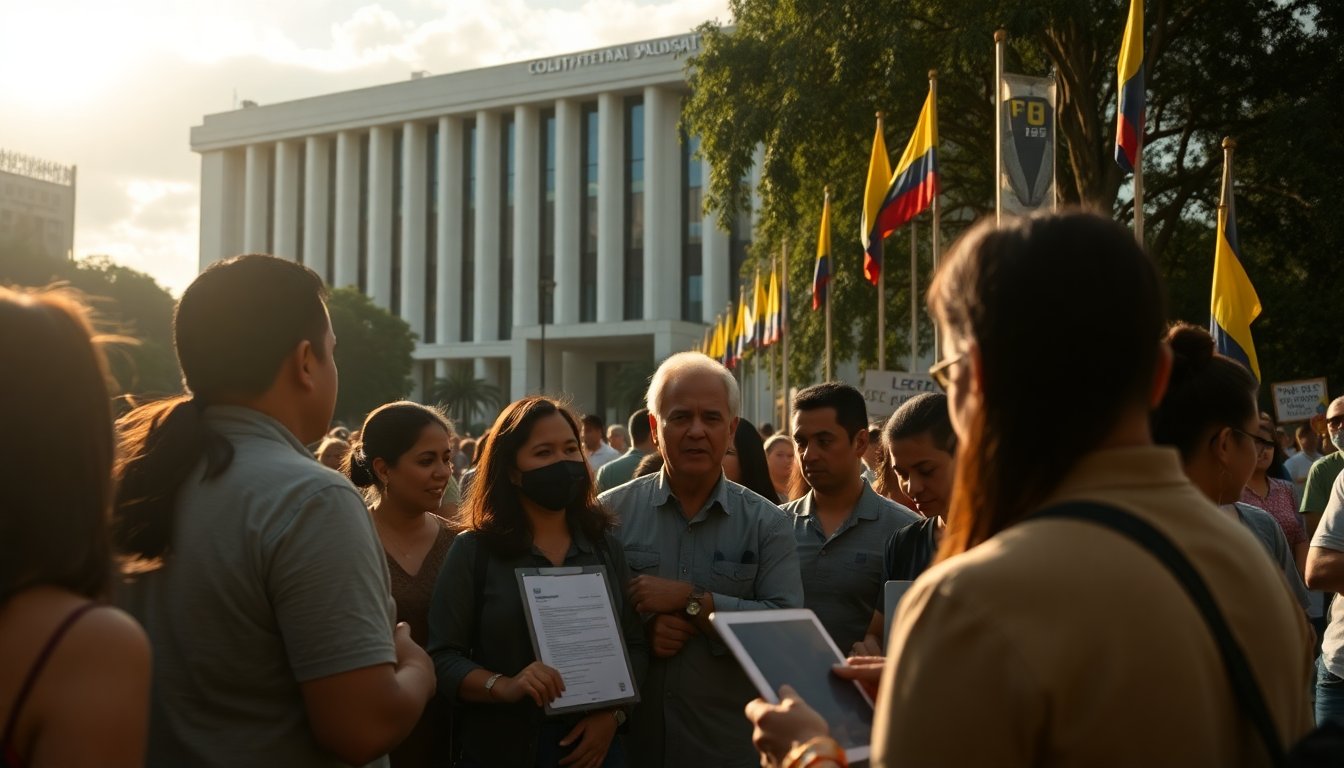Table of Contents
Sanctions imposed on Colombian president reflect shift in U.S. relations
The recent sanctions imposed by the United States on Colombian President Gustavo Petro represent a significant change in diplomatic relations between the two countries. Petro, known for his criticism of U.S. military interventions aimed at drug trafficking, has faced allegations regarding his government’s effectiveness in tackling the rising issue of cocaine production in Colombia. This situation not only highlights a growing divide but also prompts concerns about the future of U.S.-Colombia collaboration in addressing drug-related challenges.
Rising tensions amid sanctions
Sanctions imposed during the Trump administration coincide with escalating tensions over differing strategies in the War on Drugs. President Petro has shifted significantly away from traditional U.S. policies aimed at reducing drug trafficking. U.S. Treasury Secretary Scott Bessent noted that cocaine production has reached unprecedented levels during Petro’s tenure. Consequently, the U.S. government has taken firm measures, declaring its intolerance for the unregulated influx of illegal drugs across its borders.
Allegations against Petro
Allegations fueling the sanctions include the claim that President Petro has not only failed to control drug production but has also aided in the expansion of drug cartels. The U.S. government asserts that cocaine exports from Colombia have increased significantly since Petro assumed office, leading to a rise in availability on American streets. The administration accuses Petro of enabling narco-terrorist groups through his policies, particularly his so-called total peace plan, which critics argue has empowered criminal organizations.
Impact on U.S.-Colombian relations
The recent actions taken by the United States mark a significant escalation in diplomatic tensions with Colombia. For the first time in nearly three decades, the U.S. has imposed sanctions not only on Colombian President Gustavo Petro but also on his family members and key associates. This unprecedented measure highlights a growing rift between the two nations.
Historically, Colombia has been regarded as a vital ally of the United States in the ongoing battle against drug trafficking, benefiting from extensive military and financial assistance. However, the U.S. State Department’s declaration that Colombia is now failing to cooperate in drug control efforts signals a troubling shift in this long-standing partnership.
The fallout of these sanctions
The U.S. has announced a reduction in assistance to Colombia following recent developments. This decision highlights increasing frustration within the U.S. government regarding President Petro’s handling of drug trafficking. The sanctions target both President Petro and the broader issues of drug-related activities in Latin America. The Treasury Department has stated that this action is necessary to safeguard American citizens from the rising tide of illegal drugs and the violence linked to drug trafficking.
Petro’s response and defense
President Petro has firmly denied the accusations against him, despite ongoing sanctions. He emphasizes that his administration has long been committed to combating drug trafficking and has achieved progress in reducing cocaine consumption in the United States. Petro described the U.S. sanctions as a paradox, arguing that they hinder efforts in the battle against drugs. He criticized the U.S. approach, which he claims places the blame for Colombia’s drug issues solely on its leadership, rather than addressing the deeper systemic problems that fuel the drug trade.
Understanding the drug crisis
The issue of drug trafficking in Colombia is both complex and multifaceted. Colombia has evolved from a nation once dominated by the notorious drug lord Pablo Escobar to becoming the world’s leading producer of cocaine. According to the United Nations, cocaine cultivation in Colombia has surged, with production rates now six times higher than those observed in the early 1990s. This ongoing crisis presents significant challenges not only for Colombia but also for its international partners.
As the United States and Colombia navigate this turbulent landscape, the future of their alliance remains uncertain. Sanctions against President Gustavo Petro highlight the difficulties in tackling drug trafficking and the intricate dynamics of international relations.


